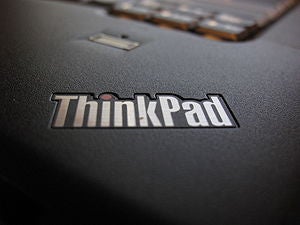
Image via Wikipedia
Google’s Chromebook notebook play, announced during the company’s Google I/O conference, may be aimed at businesses, governments, and educational institutions, as well as consumers, but will any of these end-users or end-user organizations be interested in buying what Google wants to sell, or lease, as the case may be?
Google’s hardware-as-a-service (HaaS) and software as a service (SaaS) is a pretty unique combination coming onto the market right now. Partnerships with Citrix and VMware ensure that enterprise applications that businesses rely on will run on Google’s Chromebooks. Plus, the offering includes the Google Apps suite of email, word processing, spreadsheets, presentation software and more, albeit not as mature versions of these as offered by the likes of Microsoft.
Google’s Price
And the pricing of the leased HaaS/SaaS service is pretty sweet: $28 for business and government and $20 for educational users per user per month including support, regular hardware upgrades, and lots of other benefits designed to make Chromebooks a relatively hassle-free choice. It’s the promise of the thin client we’ve all heard about for the last 20 years.
Or you can buy the Chromebook devices yourself from Google hardware partners Acer and Samsung at prices starting at $349 (sold through Amazon.com and Best Buy). They run on Intel’s Atom (i.e. netbook) processor.
In the other corner is Lenovo, which is staging its first Lenovo Accelerate Channel Partner Forum in Las Vegas this week. On the keynote general session agenda partners can expect to hear from Lenovo’s who’s who in the executive suite (including CEO Yuanqing Yang, COO and President Rory Read, Senior Vice President of Global Services Peter Bartolatta, Senior Vice President and General Manager for North America David Schmoock, and of course North American Channel Chief Chris Frey, among others.)
Enter Lenovo
About a month ago Lenovo announced plans for “Cloud Ready Clients,” a software architecture that will be included on all ThinkPad laptops and ThinkCentre desktop PCs powered by Intel’s second generation Core or Core vPro processors. Already that’s a step up from an Atom-powered device, i.e. Chromebooks, and I’m certain the price will reflect the higher value. Lenovo said that Cloud Ready Clients would include Intel’s APIs that are designed to tie key hardware attributes of the client to cloud applications.
And Lenovo also announced Lenovo Secure Cloud Access, powered by Stoneware’s webNetwork, a delivery method to improve the way cloud-based applications work with notebooks, desktop PCs, smartphones and tablets.
Users can use any browser to access their web or local and published Microsoft Windows applications on nearly any device, a compelling capability that resolves many of the problems smartphone and tablet users have experienced.
The Price of IT by Lenovo
Priced at $80 per user per month, it’s more than triple what Google Chromebook users would pay for the combined HaaS and SaaS experience from Google, and Lenovo users have to buy their own client device. But Lenovo, with its IBM ancestry knows the enterprise market better than Google does.
Lenovo uses all the right language for IT administrators — LDAP, authentication method, SSL, VPN, allocating resources, processor performance, graphics and bandwidth to explain why its solution is superior for enterprises.
And of course the sweet part of this offering is to be able to get access to all your applications and documents from whatever device you happen to be using – notebook, tablet, or smartphone. Plus, you are not locked into Atom-based Chromebook with a 16GB hard drive as hardware.
“For cloud computing to be truly effective, the cloud must recognize the client device and its capabilities, and the applications and resources have to be capable of exposing themselves to the cloud. That’s why Lenovo Cloud Ready Client and SCA are a match made in heaven,” said Rich Cheston, executive director and distinguished engineer, Lenovo, in a statement last month. “SCA levels the playing field between cloud application and device by mirroring what users are already familiar with while creating an easy management experience for the IT staff.”
So which one do you think your customers would rather buy?

